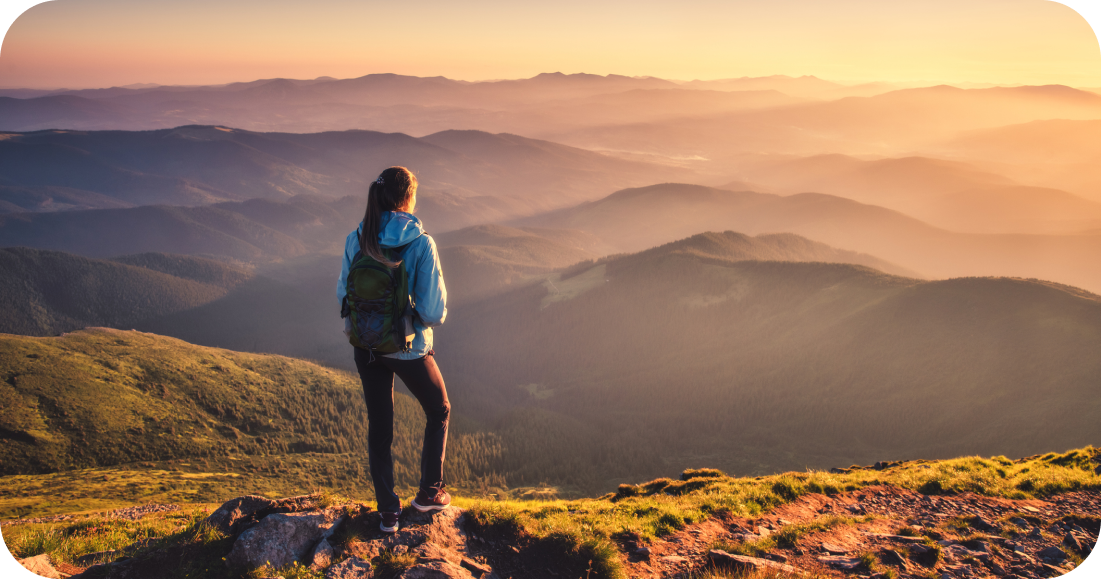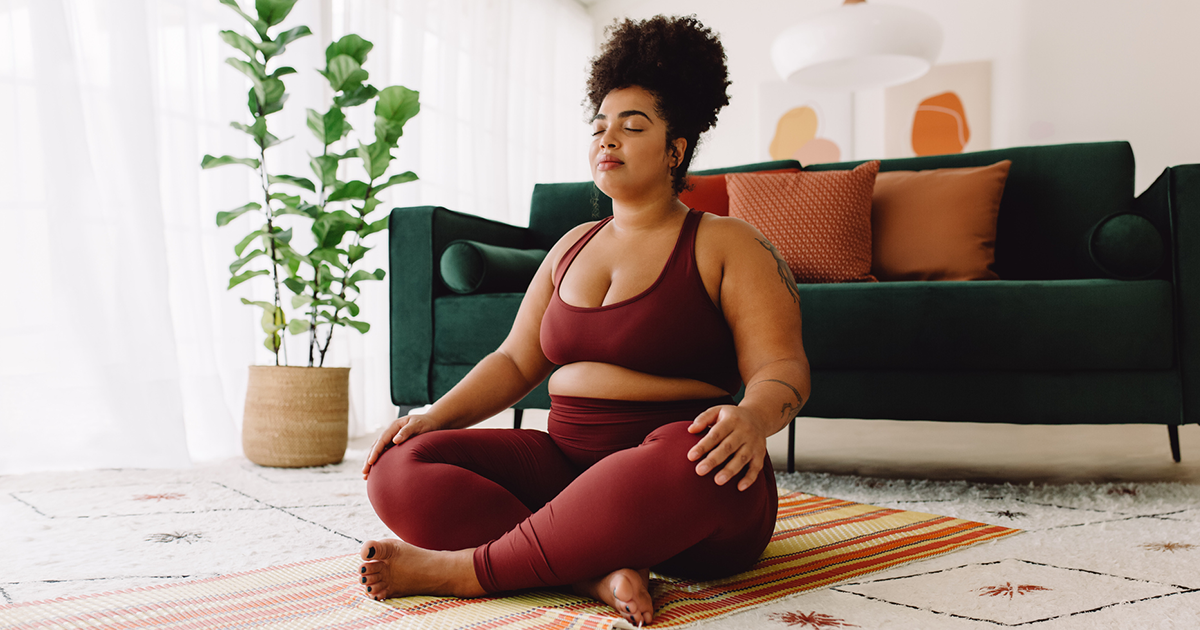During a stressful time, have you ever had someone tell you to “take it easy?” Ugh. If only it were that simple, right? Taking care of ourselves — and learning healthy ways to do so — is a skill that doesn’t come easy to a lot of us. In fact, it can take quite a bit of effort and attention. That’s why there are so many industries focused on helping people practice self care.
As a therapist, I find that myself and my colleagues are especially susceptible to burnout. It can be hard to unwind at the end of an emotionally challenging day. So, what do AbleTo therapists do to nurture our minds and our bodies? Below, the most popular ways we prioritize our needs.
How AbleTo therapists practice self care
Here’s what works for us. By sharing this list, we hope you’ll be inspired to tend to yourself today — and every day.
We practice mindfulness
This likely comes as no surprise, but mindfulness helps … a lot. If you’re looking to start a meditation practice, choose an exercise from AbleTo’s meditation library. We’ve got a little something for everyone.
We say “no”
If you often find yourself overbooked or with little time for self care, practice saying, “No, thanks” in the mirror or with a trusted person. Therapists recognize the importance of setting boundaries. We know it’s okay to turn down plans in order to take care of ourselves.

Achieve your mental wellness goals
AbleTo programs give you 24/7 access to tools, activities, and content tailored to your needs. Sign up or log in to start exploring.

We limit social media
Social media can help us feel connected to others. But it can also be a source of stress. (Doomscrollers, raise your hand). To strike a balance, many of us therapists take a mindful approach. We pay attention to how social media affects us. And then we set appropriate limits. For some, that means deleting the app from their phones and just using the desktop version. For others, setting a social media timer has been helpful.
We use time off… for time off!
As a society, we’re so hyper-focused on productivity that this mentality can spill over into our vacation time. (I know I’m personally guilty of using non-work hours to create to-do lists!) But going non-stop will just lead to stress and burnout. So the next time you take a day off from work, try to refrain from filling it up with tasks. It’s okay to take time off and just truly rest. Free time may feel scary at first, but you’ll be taking a big step in learning to let yourself relax.
We listen to music
A 2018 review of studies found that creating, singing to, or listening to music can help reduce feelings of anxiety, worry, nervousness, and restlessness. And study participants only needed one session to reap the benefits. So take a page from AbleTo therapists, and turn on your favorite tunes. Bonus points if they fall within 60 to 80 beats per minute. In the study, music at this tempo helped to reduce stress more than music at other or unspecified tempos.
We head outside
Just 5 minutes of “green exercise,” like taking a stroll through your backyard garden, can help boost your mood and self-esteem, according to an analysis of 10 studies. The next time you’re feeling low, take a short walk in nature. It just might help you feel more grounded.
We practice yoga or mindful movement
Yoga can help reduce stress levels. So it’s probably no surprise that there are a lot of yogis at AbleTo. But don’t worry, you don’t have to become an overnight athlete to benefit. We find that even a few calming stretches throughout the day can help.
We reach out to others
Social support can help us talk through stress and anxiety. When you’re struggling to relax, try reaching out directly to someone you trust.
We read
Pick up a book that sounds fun to read. Avoid ones that you feel you “should” read. If you don’t know where to start, browse the bestseller lists. Or go to the library and talk to your librarian. Want to read more and reap the benefits of community? Join an in-person or virtual book club to make new connections.
We talk to ourselves
Umm, should you be worried?! Not at all. We often help clients, and ourselves, relax by reframing thoughts to be more helpful. Learning how to do this can take a bit of practice. To get started, try AbleTo’s 3Cs Guided Journal. It will walk you step-by-step through the process.
We find support
Yes, even therapists have therapists! If you find yourself struggling to relax, AbleTo’s therapists and coaches can help you better understand and cope with chronic stress.
Find what works for you
If there are things on our list that don’t feel right for you, that’s okay. Self care isn’t a “one-size-fits-all” approach. Create a list of practices that work best for you.
As you try different activities, check in with yourself. Ask, “How do I feel?” Assess whether that activity belongs on your list going forward. If you feel calm and more relaxed, make it part of your routine. And remember, feeling better doesn’t happen overnight. But taking small steps in the right direction can make a big difference.
Need help putting these tips into practice?
You may be eligible for virtual therapy, coaching, or on-demand self care from AbleTo. Each program is designed by clinicians and grounded in science. Sign up today and get the support you deserve.
By Clare Jordan, M.Ed., PCC
Clare Jordan is an AbleTo Clinical Quality Improvement Specialist with over a decade of experience in behavioral health. She completed her M.Ed. in clinical mental health counseling and is an independently licensed clinical counselor in four states. Clare has lived in Ohio for the past 15 years and enjoys exploring her historic neighborhood. When she’s not working, she practices yoga at her local studio, reads fiction, and takes walks outside with her family.
Clinically reviewed by Sarah Dolling, LPC.
Photo by Julia Amaral/iStock. Individuals in photographs do not represent AbleTo participants.
The information featured on this site is general in nature. The site provides health information designed to complement your personal health management. It does not provide medical advice or health services and is not meant to replace professional advice or imply coverage of specific clinical services or products. The inclusion of links to other websites does not imply any endorsement of the material on such websites.


